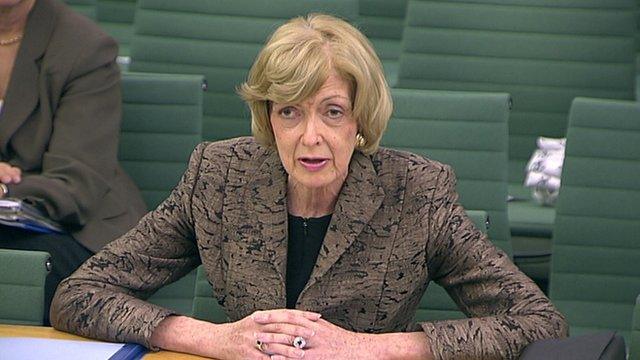Abuse inquiry: Fiona Woolf steps down as chairwoman
- Published
Fiona Woolf: "I am sad that people are not confident in my ability to chair what is a hugely important inquiry impartially"
Fiona Woolf is to step down as the head of an inquiry into historic child sex abuse, she has told the BBC.
She said it had been clear for some time that victims did not have confidence in her, adding that it was time to "get out of the way".
Victims' groups earlier told government officials they were "unanimous" she should quit, citing her social links with ex-Home Secretary Lord Brittan.
Home Secretary Theresa May said she had accepted her decision "with regret".
"I believe she would have carried out her duties with integrity, impartiality and to the highest standard," she said in a statement.
Mrs May said she would make a further statement to Parliament about the inquiry on Monday.
However, Labour said the home secretary had "serious questions to answer" over her handling of the inquiry.
Prime Minister David Cameron had previously given Mrs Woolf his public backing, who came under mounting pressure over her links to Lord Brittan, whose actions while home secretary in the 1980s are expected to be part of the investigation.
Mrs Woolf disclosed she had five dinners with Lord Brittan between 2008 and 2012, prompting victims and charities to voice their concern.
'Brewing for some time'
Her resignation comes after the first person appointed to lead the inquiry - Baroness Butler-Sloss - stepped down in July when concerns were raised about the fact that her late brother was attorney general during the 1980s.
The independent inquiry was set up to look at how public bodies dealt with historic allegations of child sex abuse, however, victims' groups have called for a statutory inquiry.
It follows claims over many years about paedophiles in powerful places and alleged establishment attempts to cover up their actions.
Peter Saunders, of child victims' group NAPAC: "Fiona Woolf has finally done the honourable thing"
Speaking to BBC Radio 5 Live's John Pienaar, Mrs Woolf said she regretted "unsettling" victims, saying: "I've clearly destroyed their confidence in the inquiry with me leading it. These are the last people I had wanted to upset."
She said: "I was determined that the inquiry got to the bottom of the issues and if I don't command their confidence to run the panel fairly and impartially then I need to get out of the way."
It had been "clear for some time victims didn't have confidence" in her, Mrs Woolf added.
"Ever since the issue first arose I have been worrying about the negative perceptions and there has been a lot of negative comment and innuendo and that has got in the way as well," she said.

Analysis: Massive scrutiny
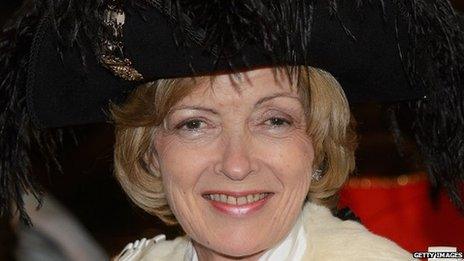
Dominic Casciani, BBC home affairs correspondent
Right from the get-go, an inquiry chair is under massive scrutiny.
They would be naive in the extreme not to realise that they run the risk of being accused of failing to get to the bottom of things or, worse, penning an official whitewash.
And that's why Fiona Woolf has quit: she realised that without the confidence of victims and survivors of abuse, the inquiry she had hoped to lead would not command the support of the very people she wanted to help.

'Inclusive leadership'
Earlier this month Mrs Woolf, who is Lord Mayor, external of London, disclosed, external that she lived in the same street as Lord Brittan and had dinner with him five times between 2008 and 2012 - but said he was not a "close associate".
Lord Brittan may be called to give evidence to the inquiry, which will look at whether public bodies and other institutions did enough to protect children from sexual abuse from 1970 to the present day.
He denies any wrongdoing in the way the "dossier" on alleged high-profile paedophiles was handled in the 1980s.
It also comes after it emerged that a letter from Mrs Woolf, external about her links with Lord Brittan was re-written seven times.
Asked about whether redrafting the letter with the help of the Home Office undermined how impartial she appeared, she said: "It does look like that."
And questioned about who should now lead the inquiry, she said: "It needs leadership - inclusive leadership - which I can't command.
"The victims don't have confidence in me. You need someone with confidence from everyone."

'Survivors dictated her fate'
Chair of the Home Affairs Select Committee Keith Vaz: "The real problem in all this has been the process"
Ross Hawkins, BBC political correspondent
Fiona Woolf's career, her social life and her connections to the establishment were scrutinised by the media and MPs.
But as she conceded today, the survivors of abuse dictated her fate.
As at the phone hacking inquiry, the voices of victims and their representatives were impossible to ignore.
And now, more than three months after it was established, the child abuse enquiry has no leader and has completed no meaningful work.
Her resignation will see the scrutiny switch to Home Secretary Theresa May.
Labour leader Ed Miliband suggested today's events were a direct consequence of the way that she had run the process.

'Appalling incompetence'
Mrs Woolf's resignation has led to criticism of the way the government and Theresa May have handled the inquiry.
Labour leader Ed Miliband said the home secretary had got "some explaining to do" following Mrs Woolf's resignation, saying: "To lose one chair is a misfortune, but to lose two is total carelessness."
Shadow Home Secretary Yvette Cooper MP accused Mrs May of "appalling incompetence".
"Theresa May has some serious questions to answer about how this could go so badly wrong," she added.
BBC chief political correspondent John Pienaar said Mrs Woolf's resignation had given Mrs May "not so much a political headache, as a splitting migraine".
Keith Vaz MP, chair of the Home Affairs Select Committee, said that given the concerns of victims, Mrs Woolf's decision to stand down was "the right thing to do".
"This has been chaotic, look at the way in which this matter has been dealt with, it has been so badly put together," he told the BBC.
Peter Wanless, chief executive of the charity the NSPCC, called on the government to construct a process "far more engaging and involving of those with a direct interest in uncovering the truth about child abuse".
"Those who would like to kick awkward questions into the long grass must not be allowed to derail justice - which too many people have waited too long to secure," he said.
Peter Saunders, chief executive of the National Association for People Abused in Childhood (NAPAC), said the meeting between victims' groups and Home Office officials, which took place in London on Friday, should have been held "months ago".
"The government has got to get a grip and they have to talk to us about the way forward," Mr Saunders added.
Alison Millar, head of the abuse team at law firm Leigh Day, told the BBC there had been a "series of failures" by the Home Office over the inquiry.

Abuse inquiry: How we got here
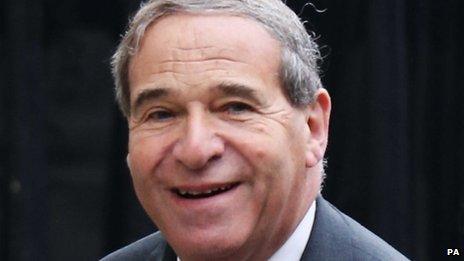
Mrs Woolf had been under pressure to resign owing to her links with Lord Brittan
1 July - MP Simon Danczuk calls on former Home Secretary Leon Brittan to say what he knew about paedophile allegations passed to him in the 1980s
7 July - Government announces independent inquiry into the way public bodies investigated and handled child sex abuse claims. Baroness Butler-Sloss chosen as head
9 July - Baroness Butler-Sloss faces calls to quit because her late brother, Sir Michael Havers, was attorney general in the 1980s
14 July - She stands down, saying she is "not the right person" for the job
5 September - Lord Mayor of London Fiona Woolf named the new head of the inquiry
11 October - Mrs Woolf discloses, external she had five dinners with Lord Brittan from 2008-12
22 October - Abuse victim launches legal challenge against Mrs Woolf leading the inquiry, amid growing calls for her resignation
31 October - Victims' groups meet Home Office officials, saying Mrs Woolf's position as head of the inquiry is 'unsuitable'

- Published31 October 2014

- Published31 October 2014
- Published31 October 2014
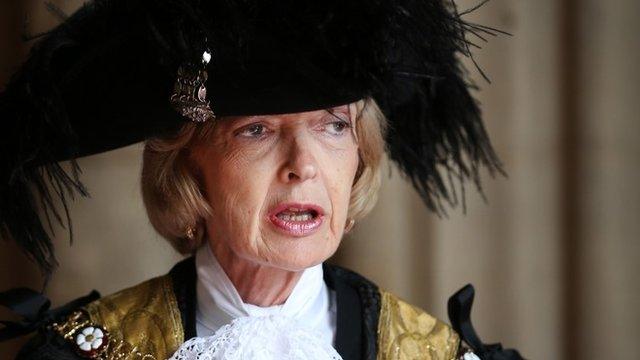
- Published30 October 2014

- Published1 December 2015
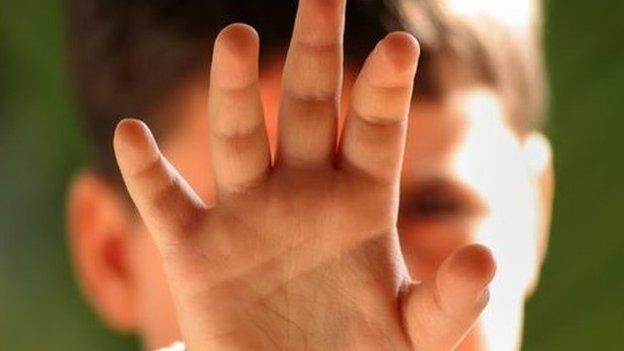
- Published4 February 2015
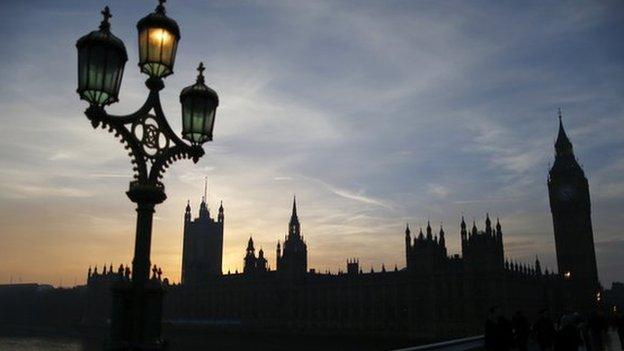
- Published23 October 2014

- Published22 October 2014
